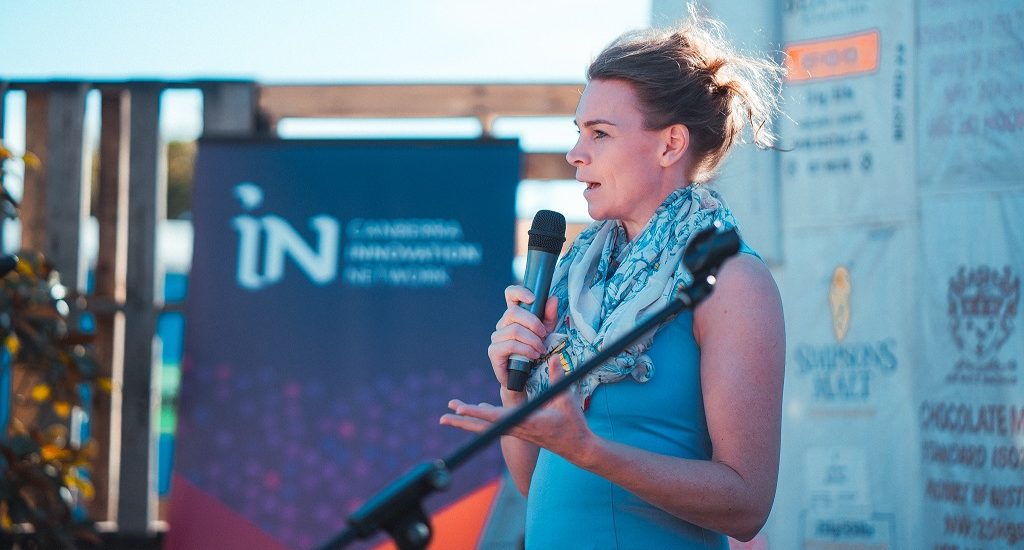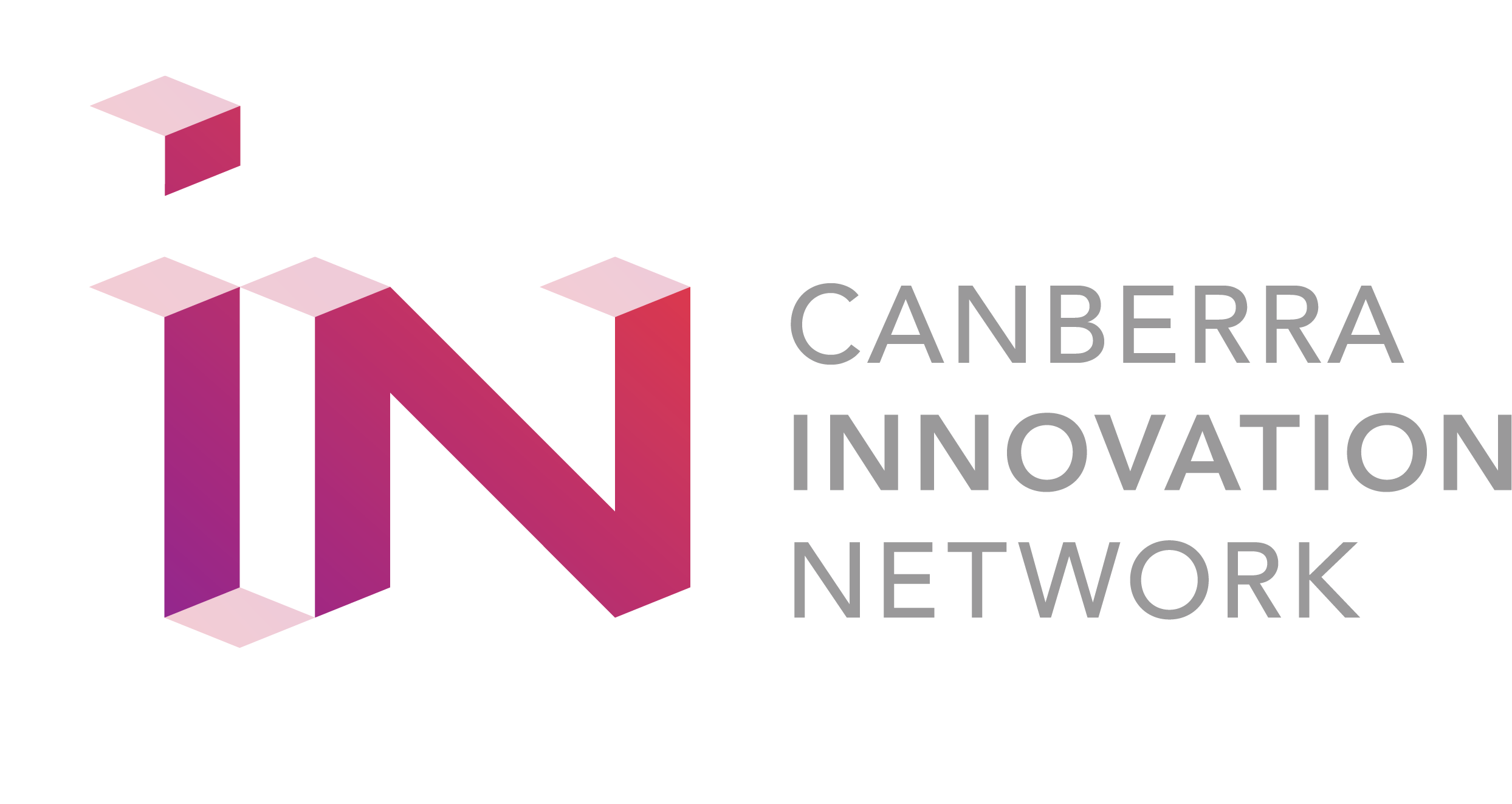- 27 May 2020
- Posted by: Canberra Innovation Network
- Category: Women in Innovation

We interview women in our community about innovation and what drives them to make a difference in their industries. This week we spoke to Rachael Greaves, Chief Executive Officer of Castlepoint Systems.
What are you working on?
We have developed a RegTech solution that reads everything in a network, and understands what it’s about using AI. It registers every piece of information then as an asset, and tracks where the risk and value is, and what regulatory obligations apply. We started selling it in January 2019, and it’s been a very busy year or so since then!
Why is innovation important to you?
We developed this solution because the existing approaches were not only not beneficial, they were actually harmful. Being able to find your information, and meet your obligations for protecting it, is so vital, but most organisations just can’t do it. The existing tech trying to address this problem had a lot of detrimental user impact, impact on source systems, and high cost, so just wasn’t widely taken up. Innovation is about seeing what’s not working, and solving for that. Solutions should be for problems, and there are so many problems out there that good, robust opportunities to innovate are really not in short supply.
What drives you to make a difference?
Our vision is to change the way the world manages information, so that people, communities and companies are safer and smarter. They say knowledge is power, and that power can be put to so much good. Conversely, there are plenty of bad actors who know how much harm can be caused with sensitive data. Unfortunately, the vast majority of government and private sector organisations don’t have knowledge, they just have ‘data’, If you can’t find it, relate it, regulate it, and protect it, you will always be powerless against those negative forces, who will take your data, actually make sense of it, and use it for their own ends. We have a strong social and environmental mission in our company, and actually you don’t have to be a For Purpose to make a real difference – tech companies can (and should) contribute a lot to the outcomes of individuals and communities. That does mean sometimes choosing who you won’t work with, as well as who you will, but overall it’s not hard to make a big difference if you base your designs in ethics and the rule of law.
Do you have any advice for getting more women into the innovation ecosystem?
Similarly to the point above, you don’t have to be ‘part of the club’ to be able to join in. Just as a tech company can have a social mission, so too can an anthropologist and classicist, like me, start a STEM company. I think we do focus a lot on preparing women and girls for careers in tech and business by strengthening and broadening STEM education, which is so important – but equally, we should be promoting the other skills and backgrounds that tech companies need to succeed. Women shouldn’t be afraid to innovate because they have internalised ideas about how they might be no good with numbers, or code, or technology. They should use the strengths that they do have to find those problems, really understand them, and come up with a novel approach to solve them. Finding other people with other strengths is the next step, and easy to do once you really have a clear and well defined focus of your own.
What are you proud of right now?
I am so proud of the team we have put together, and the way we are all working cohesively even during the lockdown. We are always so busy, and we work so hard, but we just got some survey results back today that reported 100% satisfaction in every criterion for Psychological Safety (essentially, wellbeing). We have had to grow very fast to respond to the demand (we signed two more contracts just yesterday), and even our newest members are feeling supported and confident, which is I think a really good measure of success, and one to keep our focus on!

